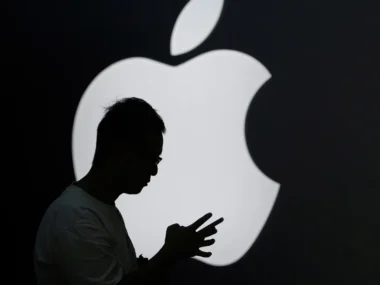Mysticism has long had a place online, but the rise of generative AI via platforms such as ChatGPT makes it simpler than ever to project a feeling of magic onto technology.
A TikTok tarot card reader looks at me through the screen and draws a card.
“If you’re seeing this,” she says with a smile, “it was meant for you.” In a sense, she’s correct. But it wasn’t fate that led me here; it was an algorithm.
Spirituality and mysticism have long had an online presence, but the rise of generative AI and personalized content recommender systems makes it easier than ever to project a sense of magic onto technology.
Arthur C Clarke once said, “Any sufficiently advanced technology is indistinguishable from magic.” Anyone who has been offered content that appears to be tailored just to them may have puzzled about The Algorithm’s mysterious omnipotence. with, while there’s nothing intrinsically wrong with feeling awe in the face of technological innovation, or even adopting digital technologies to improve a spiritual practice, combining magic with technology can be dangerous.
As a result of OpenAI’s huge language model GPT-4, several religious and spiritual spinoff chatbots have arisen. You can use BibleGPT to produce customized Christian poetry, Jesus AI to have “meaningful conversations with Jesus Christ,” and WitchGPT to discuss paganism.
“Welcome to the void” beckons the popular astrological software CoStar in its latest chatbot feature, allowing users to seek produced advise for a cost of approximately $1 each query. Using a set of suggested queries, I “Ask the Stars” whether I have a hidden admirer. “No,” it responds (rudely).
In classic CoStar flair (the app is famously sarcastic), it also chastises me for even asking the question, advising that I should instead be grateful for what I already have.
These instances are, at best, ridiculous and most likely harmless. At worst, they show swindlers attempting to profit by creating a sense of insight or enlightenment by using humans’ proclivity to anthropomorphize technology or by gaming social media engagement algorithms.
However, among the chaff are people who are building genuine spiritual communities and practicing witchcraft and other holy practices online. As with many subcultures, social media can be both a boon and a curse: it may bring diverse people together while simultaneously diminishing or adulterating traditional practices.
Dr Emma Quilty, a feminist anthropologist with upcoming books on magic and technology, distinguishes between those who emphasize the community and others who promote a “neoliberal spirituality” that corresponds with hyper-individualistic concepts of self-improvement.
This comes dangerously near to commercialized forms of self-care, completely removed from its Black radical feminist beginnings and pushed toward a capitalist co-option of wellbeing. Quilty explains how social media-fueled trends can lead to rituals becoming disconnected from the (typically eastern) religious traditions and cultures from which they are imported, as well as unsustainable market demand for things like crystals and white sage smudge sticks.
This is not to imply that it is impossible to form significant spiritual communities and practices online, or to have a profound experience with digital means.
I am not interested in ignoring where and how people find meaning. However, it is vital to remember that technologies like as big language models and customized recommender systems are ultimately intended to produce value for their consumers.
Any significant experience gained from these instruments is the result of our actions, not the tool itself. In her words: “Something can be positive, helpful or even empowering on an individual level, but can still be harmful at a broader societal level, because of the underlying interests and imperatives of those building and implementing the technology.”
When we mistake technology for magic, we might rapidly find ourselves in trouble. It plays perfectly into the hands of firms that would rather have us be astonished by a gleaming user interface and smooth ease than peek behind the curtain to see a crotchety old man keeping everything together with overdone marketing jargon and plain old profit-driven data extraction.
When magical thinking about technology reaches the level of policymaking, it can be harmful. Too frequently, governments and businesses alike look to technology as a quick fix for complicated social issues. And when the real limitations and consequences of technologies are ignored, such as how automation can exacerbate social inequalities, or how ChatGPT couldn’t function without stealing copyrighted material, or that automated content moderation relies on exploited invisible workers, we end up with policy that fails to reign in the worst of tech’s ails and relegates the more complex but necessary policy interventions to the background, all overshadowed by the magical all.
Technology isn’t a cure-all for social evils, and when utilized for selfish gain, it can do significant harm – just like magic.











